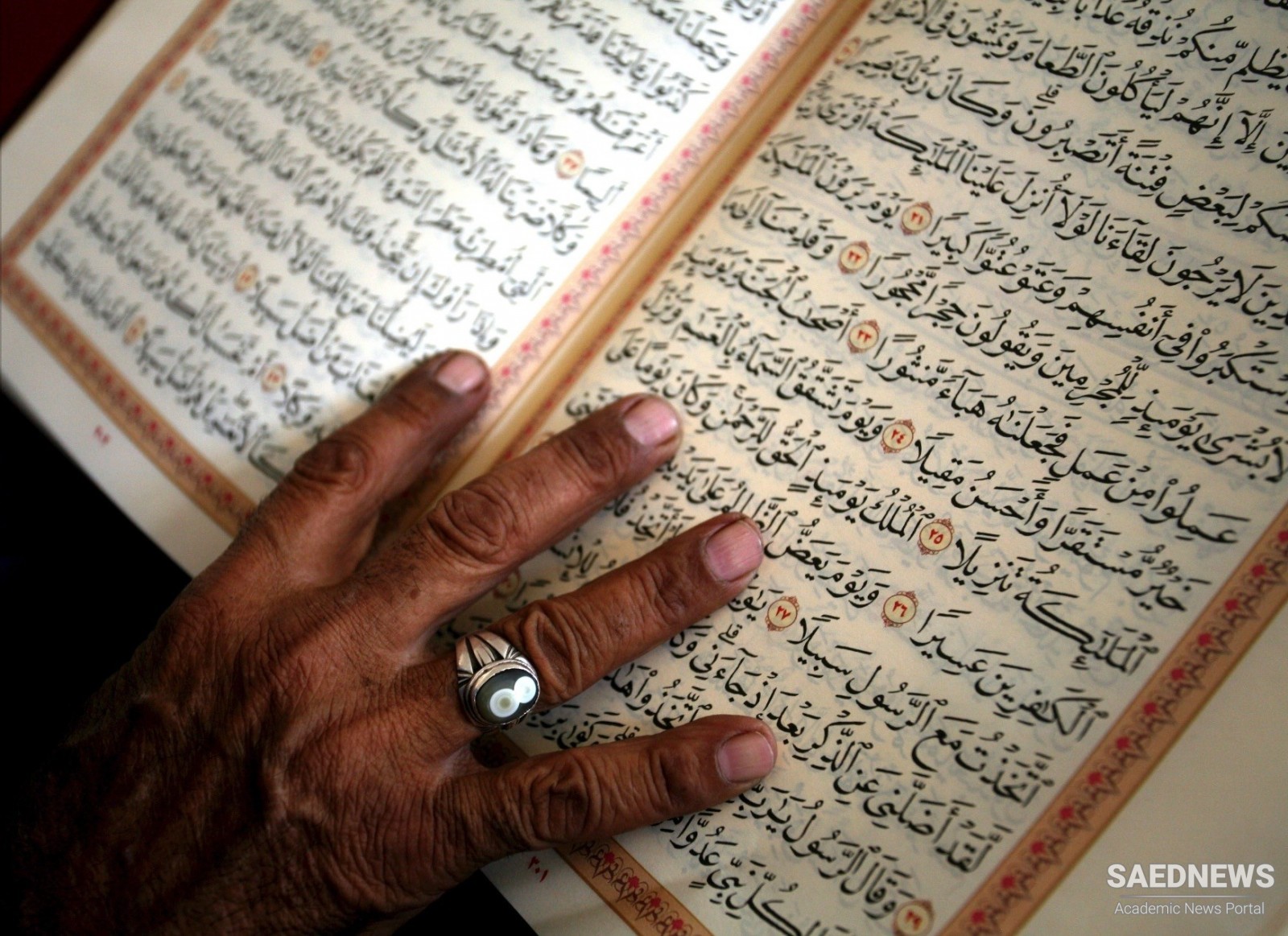Since the days when the soldiers of Muawiyah reportedly affixed pages of the Qur'an to their lances and asked for arbitration in their historical battle against Ali (July 657), the sacred Text has been used politically. Once the long and varied history of Qur'anic commentaries proper began, the classical distinction between "Qur'anic exegesis through Prophetic traditions" (al-tafsir bi al-ma'thur) and "Qur'anic exegesis through exertion of personal opinion" (al-tafsir bi al-ra'i) has been an indication of the attempt to close the legitimate hermeneutic circle that could engage with a certain degree of validity in Qur'anic interpretation. The further division of al-tafsir bi al-ra'i into "the acceptable'' (al-mahmud) and "the unacceptable" (al-madhmum) is yet another indication that political and ideological factors have played an important role in the definition of the hermeneutic circle around the Qur'anic text. The classical Qur'anic commentaries are usually supported by materials that are either within the domains of the Islamic canonical sources, such as the Prophetic traditions, or are necessitated by the very language of the Text, such as Arabic syntax, morphology, or etymology. The most essential external element that Taleqani brings to bear on his Qur'anic exegesis is his sincere attempt to verify his specific ideological reading of the existing political situation by repeated references to the sacred Scripture. This exclusive attention to such political concerns is at the top of his agenda, underscoring any other relevant factor that is instrumental in a typical Qur'anic commentary. Taleqani's exegesis thus leads towards a doctrinally mandated, ideologically alert, and politically sensitive verification of the current social atmosphere, conducive to a revolutionary course of action, through and in terms of the sacred Scripture. But doctrinal, ideological, or political readings of the Qur'an are not an entirely new phenomenon.
A review of the classical Qur'anic exegesis indicates that in every age certain commanding extratextual forces have guided the interpretative discourse of the Muslim commentators. Al-Tabari's (d. 923) Jami al-Bayan fi* Tafsir al-Qur'an (The Compendium of Discourse on Interpreting the Qur'an) is, as its title indicates, the first attempt to provide a comprehensive commentary on the Qur'anic passages from a variety of perspectives. However, al-Tabari's exegesis is particularly sensitive in refuting the Mutazilite* rationalistic readings of the Qur'an. On specific theological controversies, such as huduth ("createdness") or qidam ("eternality") of the Qur'an, anthropomorphism, jabr (''predestination"), ikhtiyar ("free will"), Divine justice, etc., he takes issue with the Mutazilite positions. With the increasing political overtone of the Mutazilite theological position under the Abbasids, doctrinal matters had assumed obvious ideological proportions. Al-Zamakhshari's (d. 1134) Al-Kashshaf an Haqa'iq al-Tanzil (The Revealer of the Truth of the Revelations), on the other hand, was a specifically Mutazilite commentary that sought to elucidate their ideologically charged theological positions. The Asharite* counterpart to al-Zamakhshari's commentary is al-Baydawi's (d. c. 1286) Anwar al-Tanzil wa Asrar al-Ta'wil (The Lights of Revelations and the Secrets of Interpretations). With Fakhr al-Din al-Razi's (d. 1209) Mafatih al-Ghayb (The Keys to the Hidden), the Qur'anic commentaries depart from an essentially theological epistemology and assume a philosophical language.
The theological and philosophical interpretations of the Qur'an are matched by mystically oriented exegesis. Ibn Arabi's (d. 1240) Futuhat alMakkiyyah (The Meccan Revelations) and Fusus al-Hikam (Bezels of Wisdom) and Rumi's (d. 1273) Mathnavi, although not Qur'anic commentary in the strictest sense of the term, are usually considered among the mystically sensitive readings of the Qur'an. There is also a proper Qur'anic exegesis, in the mystical tradition, attributed to Ibn Arabi that is probably that of his student Abd al-Razzaq al-Kashani (d. c. 1330).


 Religion and Moral Enlightenment of People
Religion and Moral Enlightenment of People














































